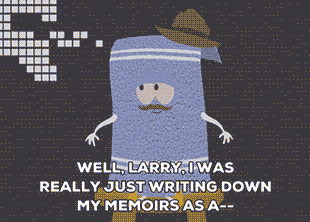THC Increases Susceptibility to False Memories
Tetrahydrocannabinol (THC), one of the psychoactive compounds in cannabis, increases people’s susceptibility to false memories. This heightened susceptibility applies both to memories implanted by others and to those formed independently. These findings come from a team of researchers from Europe, the United States, and Australia, who compared how participants remembered words and recalled details of an event under the influence of cannabis or a placebo, both immediately after consumption and one week later. The study found that THC was much more effective than a placebo in promoting the formation of false memories, while not affecting the ability to recall actual events. Notably, the effect faded over time. The article was published in the journal Proceedings of the National Academy of Sciences.
How THC Affects Memory and False Memories
One of the side effects of marijuana use is a slight impairment of cognitive functions. Most often, this is short-term: users may experience problems with concentration and significantly slower reaction times. Another effect, which some studies suggest can persist long-term, is difficulty with memory and information retention.
Beyond the obvious limitations for the user, the impact of cannabis on memory also has consequences for others, including legal implications. For example, it is unclear whether a witness under the influence of cannabis can be considered a reliable source of information. This raises another question: is a person’s memory under the influence of cannabis more susceptible to the formation of false memories?
The Study: Methods and Findings
To answer this, researchers led by Lilian Kloft from Maastricht University used two experimental paradigms. The first was the classic Deese–Roediger–McDermott (DRM) paradigm, commonly used to study false memories. Participants were read a list of related words (for example, “notebook,” “pen,” “pencil,” “textbook,” “blackboard”) and later asked to recall them. Often, participants would remember words that were not on the list but were associated with the theme (like “eraser”), confidently believing the word was present—indicating the formation of a false memory. Sometimes, participants would even recall unrelated words, which also points to false memory formation.
The second paradigm involved implanting false information. Using virtual reality (VR), participants were shown crime scenes (such as someone stealing a bag), then questioned with leading questions containing both true and false information. For example, they might be asked, “It was dark outside during the incident, right?” If the participant agreed, even though it wasn’t true, this indicated a false memory had formed.
In total, 64 people participated in both experiments, divided into experimental and control groups. The experimental group received a standard dose of THC, while the control group received a placebo. In the first experiment, after taking THC, participants were given word lists and asked to recall them a few hours later and again after a week. Compared to the placebo group, those under the influence of THC recalled more words that were never presented, both immediately (p < 0.001) and after a week (p = 0.015). Interestingly, participants most often recalled unrelated words, rather than direct associations, compared to the control group. However, THC did not affect their ability to remember the actual words presented.
In the second experiment (using VR), participants played the role of either a witness or a perpetrator, with the scene and questioning occurring after taking THC or placebo. As witnesses, participants under THC were more likely to recall suggested (implanted) details and to invent details themselves (p < 0.05). As perpetrators, the THC effect was observed only for self-generated false memories (p < 0.05). In both cases, the effect was present only immediately after THC consumption and disappeared after a week. Again, THC did not affect the ability to recall actual events.
Implications and Practical Applications
The researchers demonstrated that cannabis can influence the formation of false memories in people, even implanting facts only loosely related to what actually happened. Interestingly, the effect fades over time. Among the practical applications of these findings, the researchers highlight the legal aspect. They note that questioning witnesses under the influence of cannabis may not be advisable: while marijuana does not seem to affect the ability to recall real facts, it can cause people to remember things that never happened, complicating the process.
One of the co-authors, Elizabeth Loftus, was among the first to study false memories in the late 20th century. You can read more about her research and the concept of false memories in the article “Everything That Didn’t Happen to Me.”



